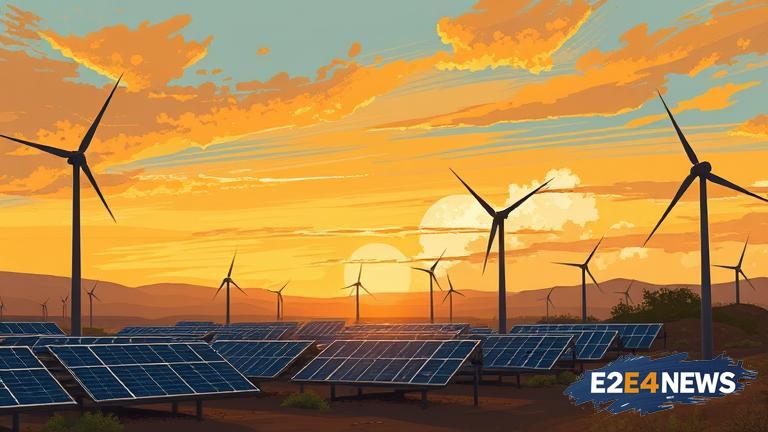Africa is undergoing a significant transformation in its energy landscape, with a growing focus on renewable energy sources such as solar, wind, and hydroelectric power. This shift is driven by the need to reduce dependence on fossil fuels, mitigate climate change, and provide energy access to the millions of Africans who currently lack it. According to recent reports, Africa has the potential to generate over 1 terawatt of renewable energy by 2030, which would account for approximately 20% of the continent’s total energy production. The African Union has set ambitious targets to increase the share of renewable energy in the continent’s energy mix, with a goal of achieving 100% renewable energy by 2063. Several African countries, including South Africa, Morocco, and Egypt, are already making significant strides in the development of renewable energy. For example, South Africa has launched a series of renewable energy auctions, which have attracted significant investment from international companies. Morocco, on the other hand, has set a target of generating 52% of its energy from renewable sources by 2030. Egypt has also announced plans to increase its use of renewable energy, with a focus on solar and wind power. The growth of renewable energy in Africa is being driven by a combination of factors, including declining technology costs, improving energy efficiency, and increasing investment from international organizations and private companies. The African Development Bank, for example, has committed to investing $25 billion in renewable energy projects across the continent over the next five years. The International Renewable Energy Agency (IRENA) has also launched a series of initiatives aimed at supporting the development of renewable energy in Africa. Despite the progress being made, there are still significant challenges to be overcome, including the need for greater investment in energy infrastructure, the development of more effective policies and regulations, and the addressing of social and environmental concerns. However, with the right support and investment, Africa has the potential to become a global leader in the development of renewable energy. The benefits of this transition would be numerous, including reduced greenhouse gas emissions, improved energy security, and increased economic growth. In addition, the growth of renewable energy would create new job opportunities and stimulate local economies. The use of renewable energy would also improve air quality, reduce water pollution, and protect biodiversity. Furthermore, the development of renewable energy would help to reduce Africa’s dependence on imported fossil fuels, which would improve the continent’s trade balance and reduce its vulnerability to price volatility. The African renewable energy market is expected to continue growing over the next decade, driven by increasing demand for energy, declining technology costs, and improving policy and regulatory frameworks. As the continent continues to transition towards a low-carbon economy, it is likely that we will see significant investment in renewable energy, energy efficiency, and grid infrastructure. This investment will be critical to supporting the growth of renewable energy and ensuring that the benefits of this transition are shared by all. In conclusion, Africa’s renewable energy revolution is gaining momentum, driven by a combination of factors, including declining technology costs, improving energy efficiency, and increasing investment from international organizations and private companies. With the right support and investment, Africa has the potential to become a global leader in the development of renewable energy, with numerous benefits for the environment, the economy, and local communities.





